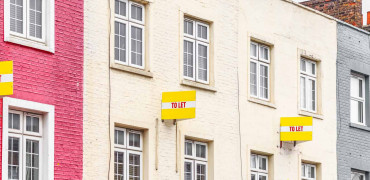Global warming and its potentially catastrophic impact on life as we know it, is the number one reason we are trying to reduce our carbon emissions. If we needed any convincing of this necessity, then watching the torrential flooding of the Sydney suburbs on our TV screens in recent days should have done the trick.
These ‘once in a century’ events are happening all too frequently across the globe to be dismissed as ‘run of the mill’ natural disasters. In the case of New South Wales, it’s the third torrential flooding they have endured in the past 18 months, which are themselves following some terrible fires which destroyed large swathes of the state’s unique flora and fauna.
Different approaches on how best to tackle climate change recently played a significant part in the outcome of the Australian general election in May, with the winner Anthony Albanese promising a raft of progressive and Green policies. Only time will tell if he can successfully wean Australia off its heavy reliance on coal as a major source of energy.
There’s scant evidence of the Government delivering against its other headline goals
Heroic targets
Here in the UK, our Government has set some pretty heroic targets for reducing the nation’s carbon emissions and this does appear to be driving a number of behavoural changes if the amount of electric cars we see on the roads are a sign of anything.
But a couple of weeks ago the Government was given a huge kick up the backside by its own expert advisers on the Climate Change Committee, who gave some withering feedback in their annual assessment of our progress in reducing emissions.
On the plus side of its report card the CCC praised the Government for setting ambitious targets and launching a new Net Zero Strategy. In many respects Whitehall was a ‘World leader’ and it has challenged other governments across the globe to follow its lead.
Lord Deben who chairs the CCC and is a former Conservative environment secretary, said the Government had set strong targets on cutting emissions but the policy to achieve them was lacking. “The Government has willed the ends, but not the means,” he said.
A mixed report card
Positively, UK emissions are now almost half (47%) their 1990 levels. And although emissions rose 4% in 2021 as the economy began its faltering recovery from COVID-19, they were still 10% below 2019 levels.
In addition, huge strides have been taken in the generation of renewable electricity where emissions have fallen by nearly 70% in the last 10 years, courtesy of wind turbines and solar panel farms replacing coal mines and some of our gas fuelled power stations. So far, so good.
But the experts also pointed pointed out there was scant evidence of the Government delivering against its other headline goals and while there are some bright spots of progress (as noted above), in most areas the likelihood of under-delivery was high.
A missed opportunity
In a statement which chimes with the times, Lord Deben said net zero policies were also the best way to reduce the soaring cost of living.
Average household bills would be about £125 lower today if previous plans on Green energy and energy efficiency had been followed through. “If you want to deal with the cost of living crisis, this is exactly what you need to do,” he said.
The CCC report was unequivacol about what should happen next: “Further progress must be led by Government policies with clear direction, credible delivery mechanisms and suitable incentives to shape private sector action. In no sector of the economy is this yet complete.”
Recognising that our homes are among the UK’s biggest sources of carbon emissions, the committee focuses a good chunk of its report on the vexed issue of our homes’ energy efficiency.
Insulate to save
In summary, the expert advisers say:
- Given soaring energy bills, there is a shocking gap in policy for better insulated homes.
- Government promised significant public spending in 2019 to boost energy efficiency improvements to our homes and committed to new policies last year, but neither has yet occurred.
- The UK continues to have some of the leakiest homes in Europe and installations of insulation to our homes remains at rock bottom.
- The average annual energy bill for UK households is around £40 higher than if insulation rates from pre-2012 had continued for the last decade.
- Much now rests on the promised energy advice service, which must be a major undertaking that reaches millions of households and supports them through implementation of options to cut their bills and emissions.
Since the turn of the century there have been several attempts at launching Green Deals that would change our lives, our homes and our futures for the good of ourselves and coming generations. But each relaunch has failed to deliver on its ambitious goals.
To stand any chance of success in the current economic climate, any drive to increase the insulation of our homes to a minimum EPC rating of C by 2030, should be aimed at helping low-income households first with entirely grant-funded installations.
Poor households are both the least likely to afford energy efficiency measures while also being the most likely to be impacted by rising energy prices.
Huge potential savings
By focusing on the poorest two million households currently living in fuel poverty, the Local Government Association (which represents over 350 councils across the country) says this action would save:
- Up to £770 million a year from household energy bills by 2030
- £500 million in NHS spending a year; and
- 670,000 metric tons of carbon dioxide a year from 2030
So what chance have we got of reaching net zero? According to the experts on the CCC, our chances currently stand at zero, if you will pardon the pun. The problem appears to lie with the current strategies being followed across Whitehall.
If we collectively fail to heed their advice and take the urgent action recommended then there is a strong chance that the once in a century floods currently affecting south east Australia, will become more commonplace across large parts of England and Wales.
Patrick Mooney is editor of Housing Management and Maintenance magazine




